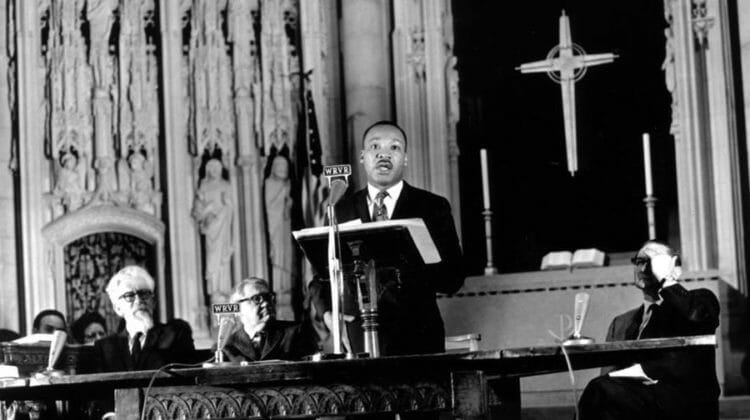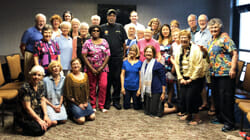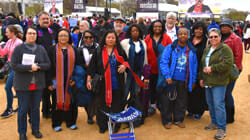No time for silence

Dr. Martin Luther King Jr. at The Riverside Church of New York City on April 4, 1967
By the Rev. Dr. Amy K. Butler
“There comes a time when silence is betrayal.” Dr. Martin Luther King Jr. spoke these words in his famous “Beyond Vietnam” speech given at The Riverside Church on April 4, 1967 — a year to the day before his assassination. Many criticized King for speaking out against the Vietnam War, saying doing so would detract from and harm his work for civil rights. They said it wasn’t his fight. They said the war was too politically controversial and complex. Historians point to this speech as the beginning of the end, a sure road to his assassination.
But King said his critics did not understand his calling as a minister of the gospel if they could not understand why he was speaking out.
As our nation prepares to mark 50 years since the “Beyond Vietnam” speech and King’s assassination, we must reckon with the fact that we are marking these anniversaries at the start of a presidential administration endorsed by white supremacists. The divisions in our nation now seem as great as they have ever been, perhaps since the Civil War. And they don’t just exist across the train tracks or between red states and blue states, rural and urban. They are across the aisles of our sanctuaries, between our pews.
As Christians, how are we to live in a time such as this? It would be easy if things were not morally complex — if people of good faith and good will couldn’t legitimately disagree on how to solve our problems. If racism was as blatant as Jim Crow and lynchings and not dependent on interpreting a shooter’s perceived fears and thoughts. If people who wear our uniform and love our country didn’t have the same names or skin tones as those who want to do us harm. If each of us was either unequivocally good or evil and not some unknown mixture of sinner and saint. Our faith would be easier if we could check off a few boxes for worship attendance and charitable gifts, and then go about our lives.
But being a Christian was never supposed to be easy. It’s simple, but it is not easy. Do justice and love mercy. Love your neighbors as much as you love yourself. And love God, too. Pick up your cross and follow the Christ who came to proclaim good news to the poor and release to the captives.
We don’t get to draw artificial lines between our public and private selves, how we act in church and the choices we make in the voting booth. We must each discern for ourselves what faithful witness looks like. And we will disagree. But fear of disagreement cannot keep us from speaking up for the basic values of our faith.
There is much uncertainty about the years ahead and how we will bridge the chasms that divide us. It may be tempting to put our heads down, look to our own well-being, protect our own families and leave others to fend for themselves. That temptation is understandable in a time when fear is the narrative all around us. It might be understandable. But it is not Christian.
King said there comes a time when silence is betrayal, and, in our nation’s political history, one of those times is certainly now. Many are already raising critical voices, opposing those who speak out when Christian values are violated in the highest office in our land. They say such criticism of the new president and his policies is sour grapes, that critical rhetoric is too politically controversial and complex or that speaking up detracts from the work of making the country great again. If we have the courage to raise our voices, historians will surely record a high price.
But voices who call for silence or acquiescence do not understand our calling as followers of Jesus, if they cannot understand why we must not remain silent.
The Rev. Amy K. Butler, D.Min., is senior minister of The Riverside Church, New York City. This article was originally published in the January 2017 online edition of The Christian Citizen.




